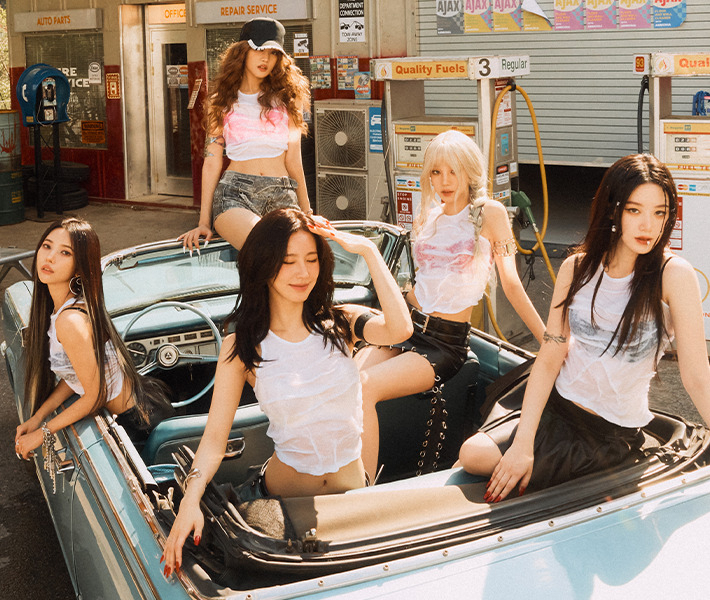 |
G-Idle (Cube Entertainment) |
An increasing number of K-pop idols are finding it less appealing to renew their contracts with major agencies, citing restrictions on freedom of expression and limited control over their music.
Industry insiders point to shifts in media and production that have empowered idols, giving them more control over their careers. With the rise of social media and independent publishers, idols no longer depend on major agencies for success.
Local entertainment companies, however, are frustrated by idols leaving despite improved conditions, citing the years of investment in developing these artists.
On Aug. 3, Soyeon of (G)I-dle surprised fans during her solo performance at the "IDOL" concert at KSPO Dome in Seoul, when she altered a lyric to say, "Who’s going to stop me?" -- a hint at potential discord with her agency, Cube Entertainment.
The agency later stated they were unaware of the specific details of the performance, but Soyeon countered, suggesting deeper issues with the company. The exact nature of the conflict between Soyeon and Cube Entertainment remains unclear.
Cube Entertainment has since confirmed that Soyeon’s contract expires in November, and discussions about a possible renewal are ongoing.
Music critic Lim Hee-yun attributes this trend to a shift in power dynamics between K-pop agencies and idols. Changes in media, platforms, consumption habits and production methods have reshaped how musicians operate.
“The long-held belief that idols need the financial backing of major agencies to maintain consistent activity has been significantly challenged in recent years,” Lim said on Tuesday. “Today, artists can directly connect with fans through social media and manage their careers by signing with smaller management companies that offer more creative freedom. Securing good songs is now the most critical factor, and this can be achieved through independent publishing companies, without relying on major agencies.”
 |
Red Velvet (SM Entertainment) |
Joy, a member of Red Velvet, is also rumored to be hesitant about renewing her contract with SM Entertainment, which is approaching its undisclosed expiration date.
In June, Joy publicly voiced her dissatisfaction with the company, fueling speculation about her future with the group. When a fan asked for her thoughts on a new music video through an online platform, Joy responded, "Well, they (SM Entertainment) didn’t listen to any of our (Red Velvet) opinions and just told us to wait. I watched the music video, and nothing was fixed. I shouldn’t say more, so I’ll stay quiet," hinting at her frustration.
On Tuesday, SM Entertainment confirmed that contract renewal discussions with Joy are ongoing, although the singer is reportedly exploring new opportunities with management agencies focused on acting.
"From the company’s perspective, it's disappointing, as we’ve invested years nurturing the artist's growth. Agencies today no longer impose strict artistic direction as they did in the past. Artists are allowed to pursue both group and solo activities, so it’s unclear what limitations they claim to have faced," a local entertainment official said on Tuesday. "Since this is a people-focused business, misunderstandings are bound to happen."
Other K-pop idols have spoken out against their agencies in recent years, too, with some even filing lawsuits or opting not to renew their contracts.
Notable cases include Baekhyun, Chen, and Xiumin of the popular boy group EXO, who filed a lawsuit against SM Entertainment last year over claims of unfair treatment, particularly concerning profit distribution.
In 2021, Wheein of Mamamoo chose not to renew her exclusive contract with RBW, though she agreed to continue participating in group activities while pursuing her solo career under a different agency.




![[Exclusive] Hyundai Mobis eyes closer ties with BYD](http://res.heraldm.com/phpwas/restmb_idxmake.php?idx=644&simg=/content/image/2024/11/25/20241125050044_0.jpg)
![[Herald Review] 'Gangnam B-Side' combines social realism with masterful suspense, performance](http://res.heraldm.com/phpwas/restmb_idxmake.php?idx=644&simg=/content/image/2024/11/25/20241125050072_0.jpg)

